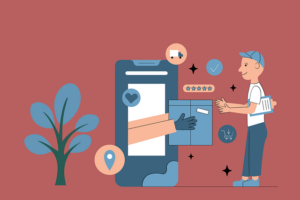
Private Internet Access (PIA) is an indispensable tool for academic researchers, especially in the medical field, where protecting sensitive patient data and intellectual property is paramount. PIA's encryption protocols and VPN services provide robust security measures to safeguard against cyber threats, ensuring that researchers can handle private data securely, maintain confidentiality, and communicate effectively without fear of interception or unauthorized access. It is essential for maintaining scientific integrity by protecting research from breaches that could undermine study validity. PIA's anonymity features and secure networks enable researchers to work with datasets across institutions while preserving participant privacy and data security. This supports seamless collaboration without the risk of exposing sensitive information. In essence, PIA for Academic Researchers is a critical solution for maintaining secure and ethical research practices in the digital age, particularly when adhering to regulations like GDPR and HIPAA. It ensures compliance with global data privacy laws, facilitating international collaboration while upholding ethical standards and legal requirements for data protection.
Navigating the digital landscape, medical researchers worldwide confront the dual challenges of safeguarding sensitive data and complying with a patchwork of global privacy regulations. This article delves into the critical role Private Internet Access (PIA) plays in academic research, emphasizing its importance in protecting data integrity and ensuring secure communication channels. We will explore how PIA aligns with global compliance standards, enhancing the trustworthiness of medical studies across borders. From understanding the necessity of private internet access for researchers to implementing robust solutions within research protocols, this piece offers a comprehensive guide on leveraging PIA in the realm of medical research, ensuring that every byte of data remains confidential and every transmission is secure.
- Understanding the Necessity of Private Internet Access for Academic Researchers
- The Role of Anonymized Data and Encrypted Communication in Medical Research
- Implementing Private Internet Access Solutions in Research Protocols
- Global Compliance with Data Privacy Laws and Private Internet Access for Academic Researchers
Understanding the Necessity of Private Internet Access for Academic Researchers

Academic researchers across the globe are increasingly reliant on internet access to gather data, collaborate with peers, and disseminate findings. Given the sensitive nature of research data in the medical field, particularly, ensuring the confidentiality and integrity of patient information is paramount. Private Internet Access (PIA) for academic researchers becomes a critical tool to maintain data privacy, protect intellectual property, and secure communication. With cyber threats evolving rapidly, PIA offers robust encryption protocols, such as VPN, to safeguard against interception and unauthorized access to research data. This is not only a matter of personal data protection but also of maintaining the scientific integrity of studies that could be compromised by breaches. Moreover, researchers often navigate diverse datasets from multiple institutions, which may involve crossing geographical and regulatory boundaries. PIA facilitates secure and anonymous access to these resources, allowing for seamless collaboration without exposing sensitive information or compromising the privacy of participants. By adopting Private Internet Access, academic researchers in the medical field can ensure that their work remains secure, their data protected, and their research processes untainted by external security threats.
The Role of Anonymized Data and Encrypted Communication in Medical Research

In the realm of medical research, the integrity and confidentiality of data are paramount. As academic researchers delve into sensitive health information, utilizing a service like Private Internet Access (PIA) can safeguard the anonymity of participants and the security of data transmission. PIA’s robust encryption protocols ensure that communication between researchers and collaborators remains unreadable to external parties, thereby protecting intellectual property and personal privacy. This is particularly crucial when sharing potentially groundbreaking research findings that could be targeted by competitors or subject to data breaches. The use of anonymized data in medical studies not only respects patient confidentiality but also allows for the analysis of larger datasets without the risk of compromising individual identities, leading to more generalizable and robust conclusions. By leveraging PIA’s secure infrastructure, researchers can confidently engage with global datasets, facilitating cross-institutional collaboration and fostering innovation in medical research without the constraint of data security concerns. The adoption of such privacy-focused tools is essential for maintaining the trust of participants and upholding the ethical standards of academic research.
Implementing Private Internet Access Solutions in Research Protocols

Medical researchers across the globe are increasingly reliant on the internet for accessing vast datasets, collaborating with international peers, and safeguarding sensitive health information. The integration of Private Internet Access (PIA) solutions into research protocols is a prudent step to ensure data security and privacy in this digital age. PIA for Academic Researchers provides a secure tunnel encrypting data transmitted over public networks, thereby protecting against eavesdropping, data breaches, and unauthorized access. By adopting these measures, researchers can maintain the confidentiality of patient records, proprietary research findings, and intellectual property while conducting their studies.
The implementation of PIA is not merely a precautionary measure but an essential component of compliance with data protection regulations such as HIPAA, GDPR, and other local data privacy laws. For researchers handling large-scale datasets that are often stored in the cloud or accessed through shared platforms, PIA for Academic Researchers offers robust encryption protocols like SSL (Secure Socket Layer) and OpenVPN, which are critical for maintaining the integrity of research data. Furthermore, using PIA enhances the reliability of remote access to institutional networks, allowing researchers to work securely from any location with an internet connection. This not only facilitates collaboration but also ensures that sensitive information is protected irrespective of the researcher’s physical location, thus bolstering the global academic community’s digital security framework.
Global Compliance with Data Privacy Laws and Private Internet Access for Academic Researchers

Global compliance with data privacy laws presents a complex landscape for academic researchers, especially those who operate on a global scale. The proliferation of stringent regulations such as the General Data Protection Regulation (GDPR) in the European Union, the Health Insurance Portability and Accountability Act (HIPAA) in the United States, and various other local data protection laws necessitates a robust framework for data security and privacy. In this context, Private Internet Access (PIA) emerges as a critical tool for academic researchers to safeguard their data and maintain compliance across borders. PIA’s suite of features, including encrypted VPN servers, ad blockers, and protection against malicious traffic, ensures that sensitive research data remains confidential and secure from potential breaches. With PIA, researchers can connect to a global network of servers and access data without the risk of interception or unauthorized access, which is particularly vital when handling medical research data subject to privacy laws. This not only protects the integrity of the research but also adheres to ethical standards and legal requirements, facilitating seamless collaboration across different regions while upholding the confidentiality of participants’ information.
Academic researchers, especially those delving into sensitive fields like medical research, must navigate a maze of data privacy concerns. Private Internet Access for Academic Researchers provides an additional layer of security that is indispensable in today’s digitally connected world. By using PIA, researchers can secure their internet connections with strong encryption, ensuring that the data they collect and disseminate remains private and secure. This is particularly important when accessing or sharing data from different jurisdictions with varying privacy laws. PIA’s commitment to no-logging policies further fortifies its stance on data protection, offering peace of mind to researchers who are often at the mercy of cyber threats. The adoption of PIA by academic institutions and researchers underscores the importance of prioritizing digital security in research methodologies and data handling practices.
In conclusion, the integration of Private Internet Access (PIA) for academic researchers, particularly in the medical field, is not just a prudent step but an imperative one in today’s data-driven and privacy-conscious landscape. The necessity to safeguard sensitive research data and maintain confidential communication cannot be overstated. PIA ensures that medical researchers worldwide adhere to stringent data protection standards, aligning with global compliance requirements such as GDPR and HIPAA. By embracing anonymized data and encrypted communication, the integrity of medical research is upheld, fostering trust and reliability in the scientific community. As medical research continues to break new frontiers, leveraging PIA for academic researchers will remain a cornerstone in protecting intellectual property and participant confidentiality, thereby contributing to the advancement of knowledge while respecting individual privacy rights.







